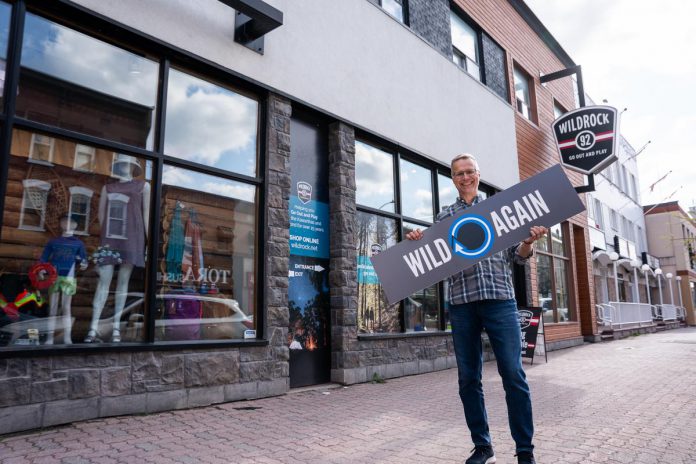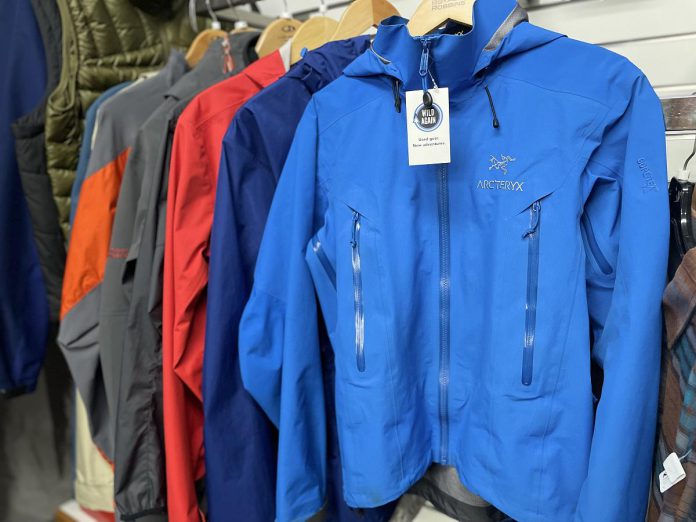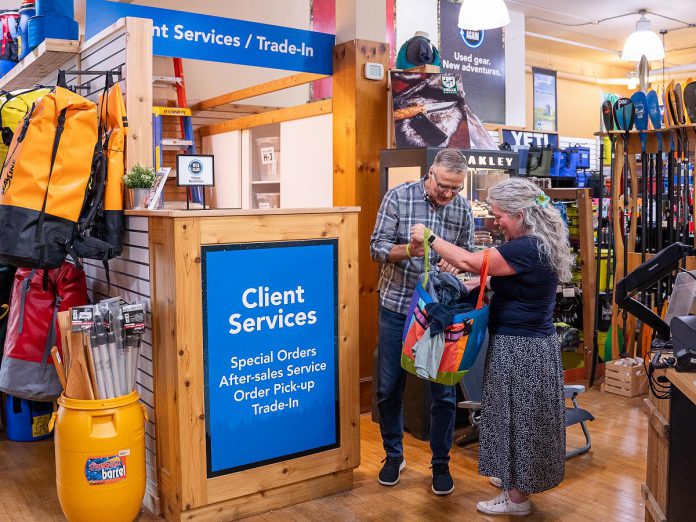
In the 2011 Black Friday edition of The New York Times, outdoor apparel retailer Patagonia published a daring full-page ad showing their signature product and telling readers, “Don’t Buy This Jacket.”
Below the image, the ad highlighted the company’s Common Threads Initiative which encouraged customers to repair, reuse, and recycle by helping to mend, find new owners, and to take back worn-out gear respectively — not just jackets, but all of their products. It also promoted “reduce” by noting their high quality meant durability and having to buy less often.
Patagonia was ahead of its time.
For decades, the dominant economic model has been simple: take resources, make products, use them, and throw them away. This system has brought economic growth and prosperity — but at an environmental cost.
Each year, each Canadian throws away almost 700 kilograms of waste, making Canada the highest per capita waste producer in the world. That’s a lot of lost value. And in making new products, the extraction and production processes are responsible for 80 per cent of biodiversity loss and 45 per cent of greenhouse gas emissions.
Fortunately, a better approach is gaining traction. Across industries — from electronics to fashion to furniture — businesses are increasingly rethinking how products are designed, used, and their value maintained.

The focus is on keeping them in use longer by making them easy to repair, or providing services that help customers resell, rent, or trade them in. These are more than sustainability efforts — they’re smart business strategies responding to changing consumer values and economic realities.
The outdoor sector, for example, generally features high-quality products built to last, yet too often a lightly worn fleece or a perfectly functional tent ends up gathering dust or being discarded.
With the right systems in place, these items can find new homes, save customers money, and reduce the environmental impact associated with producing new gear. A bonus for brands embracing resale is that they can sell the same product two or even three times profitably.
Years ago, Patagonia was proving that resale was good for business. Today, other major outdoor brands — like Arc’teryx and The North Face — have also invested in resale programs, not only to reduce waste, but also to reach new customers, increase loyalty, and extend the life of their products.
While once considered countercultural, resale is quickly becoming a mainstream retail strategy.
This shift is now taking root in Peterborough’s outdoor sector, where one of the community’s longest-standing independent retailers is joining the effort. Wild Rock Outfitters has recently launched Wild Again, a new program to keep quality outdoor products in circulation.

The Wild Again program focuses on items that hold value over time — technical clothing, hiking boots, sleeping bags, tents, and more — and allows people to trade in these items for store credit which can be used to purchase new or used products.
People can also choose to have the trade-in value donated to Wild Rock’s ComPassion Project, which supports local organizations doing meaningful work in the community.
Items accepted into the Wild Again program are cleaned, assessed, and resold, giving new life to gear that might otherwise be forgotten or discarded.
“After years of bringing sustainability into our operations, this is the natural next step for us,” notes Wild Rock co-founder Scott Murison. “Selling more used and less new product lowers our environmental impact, but it also meets the expectations of the influential Gen Z cohort who are very socially and environmentally conscious and look to buy used.”
Wild Again is more than a resale program. It’s reflective of broader cultural shift — one that values longevity, repair, and reuse over disposability.
By embracing a shift to a circular economy, businesses have an opportunity to profitably keep products in circulation that are too good to waste.
Wild Rock Outfitters is a member of GreenUP’s Green Economy Peterborough (GEC) program, and recipient of GEC’s “Leadership Outside the Box” award at the 2025 GEC Leadership in Sustainability awards. Rob Arkell is a passionate advocate for the circular economy focused on helping organizations (like Wild Rock) make the transition. He has been involved with GEC since its inception, and currently sits on the GreenUP board of directors. Learn more about GEC here at www.greeneconomypeterborough.ca.


























